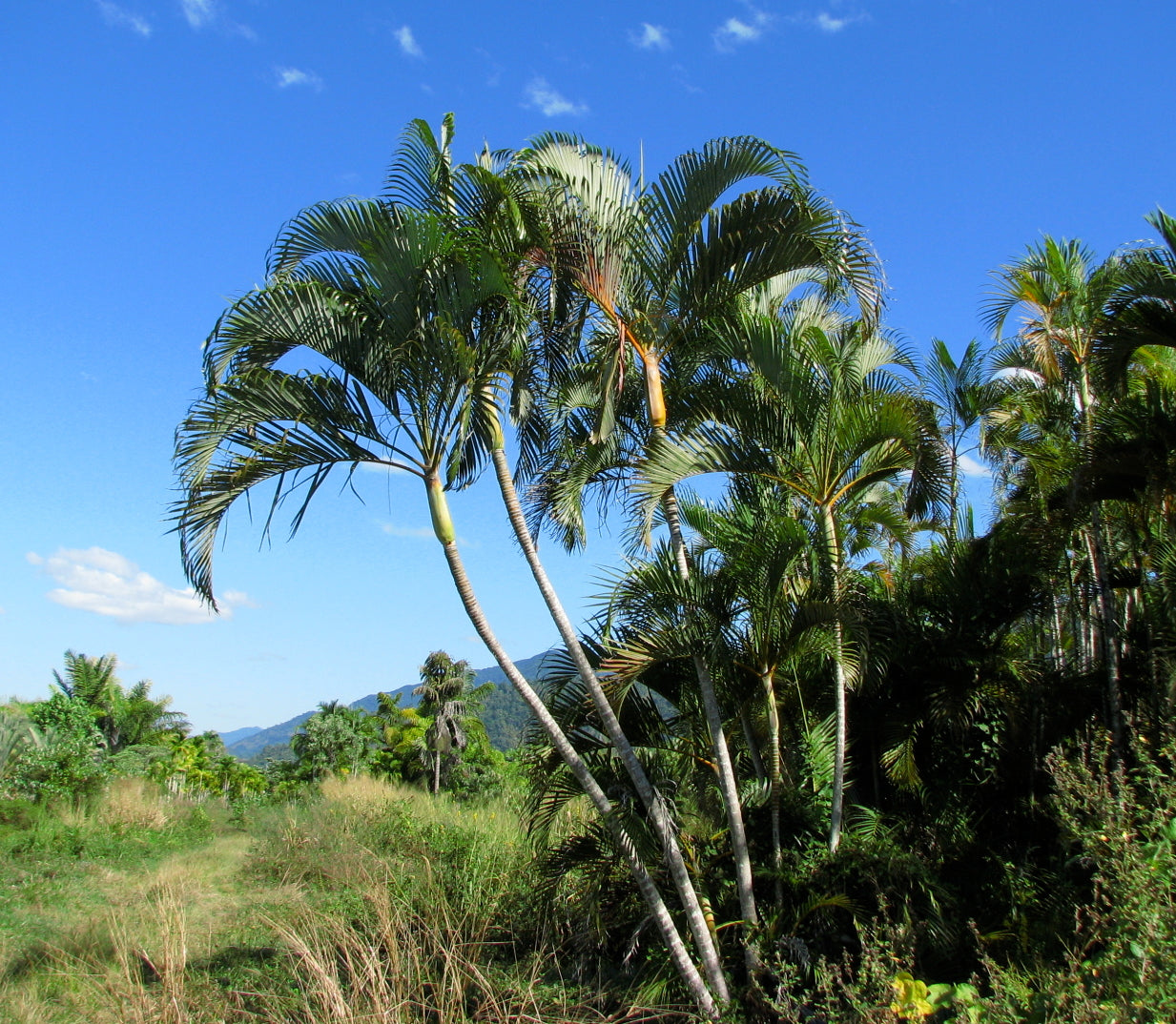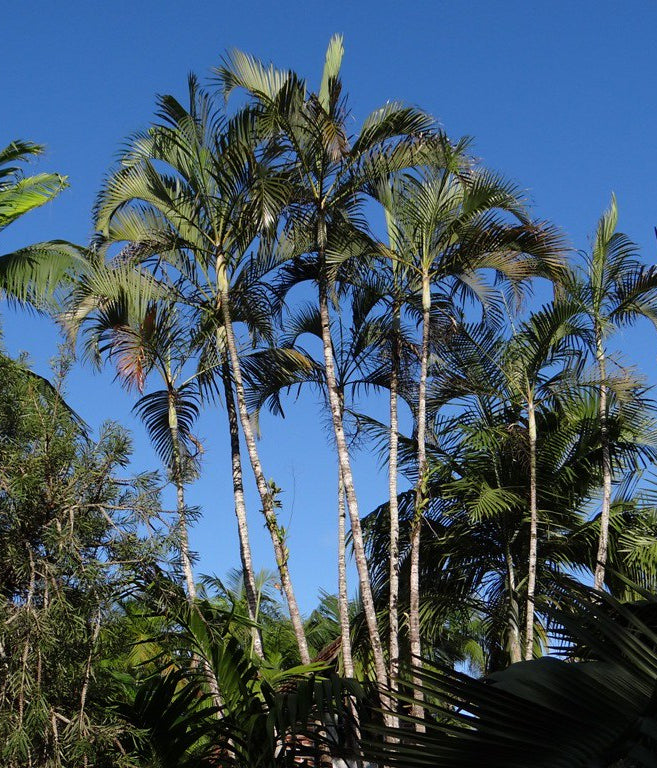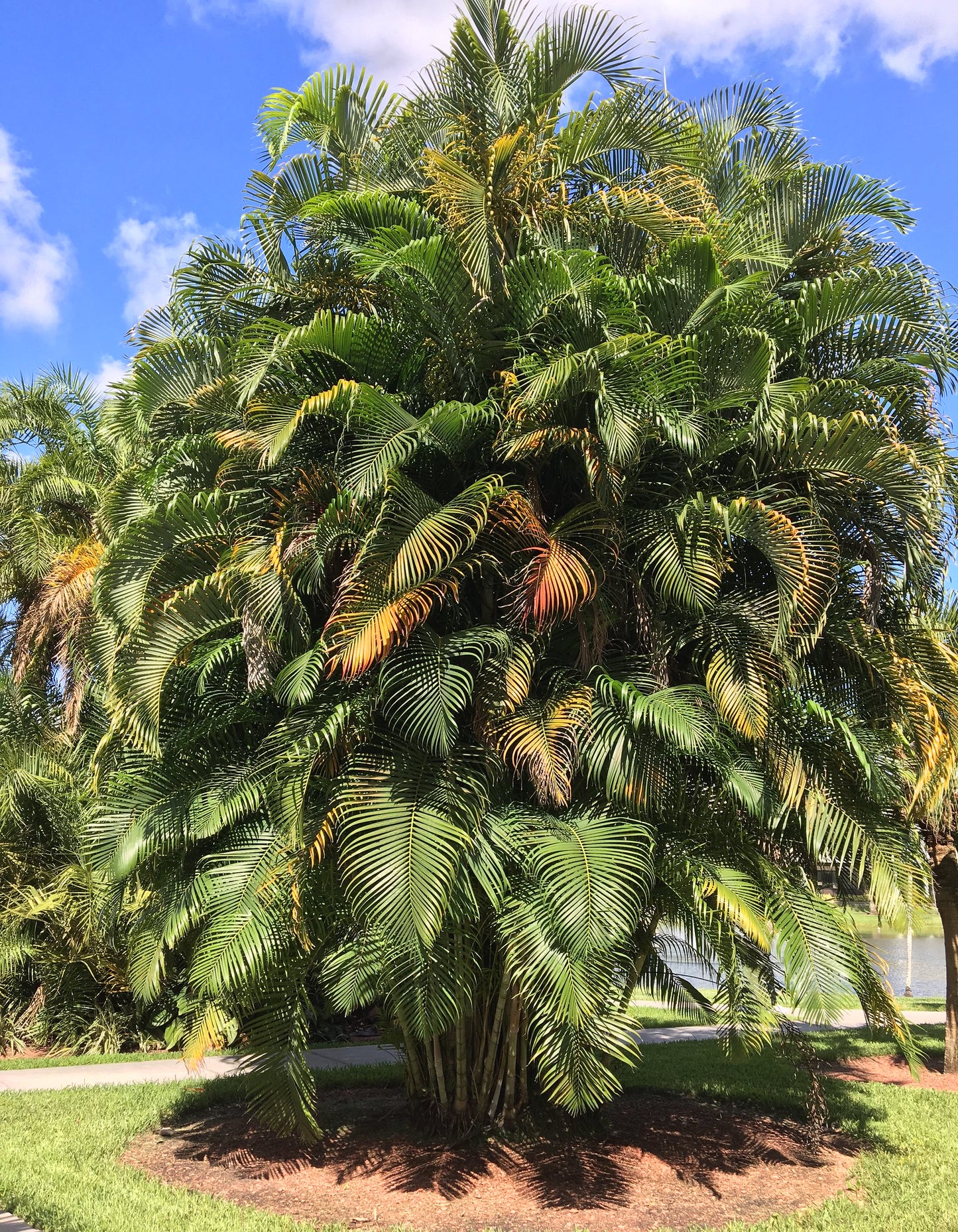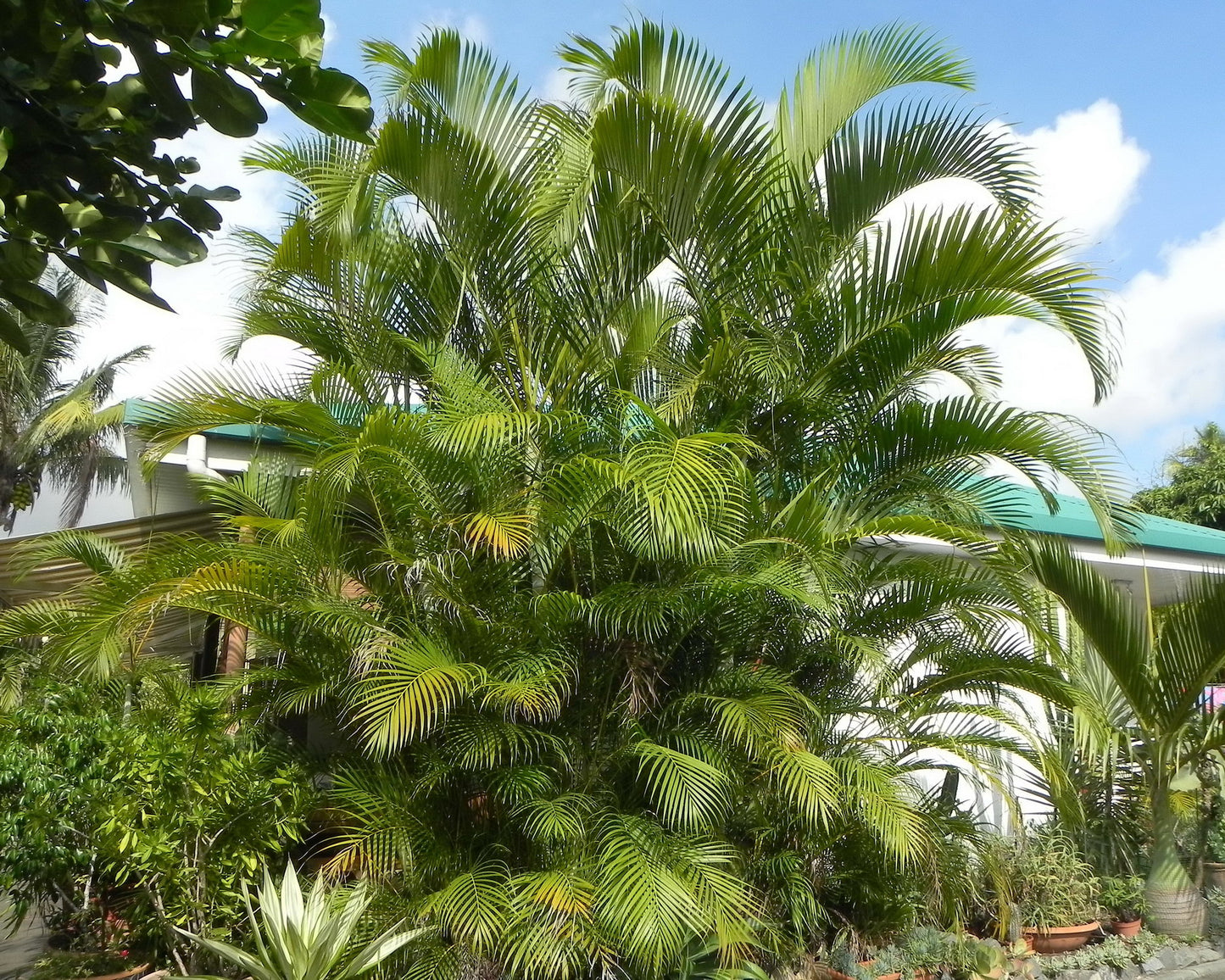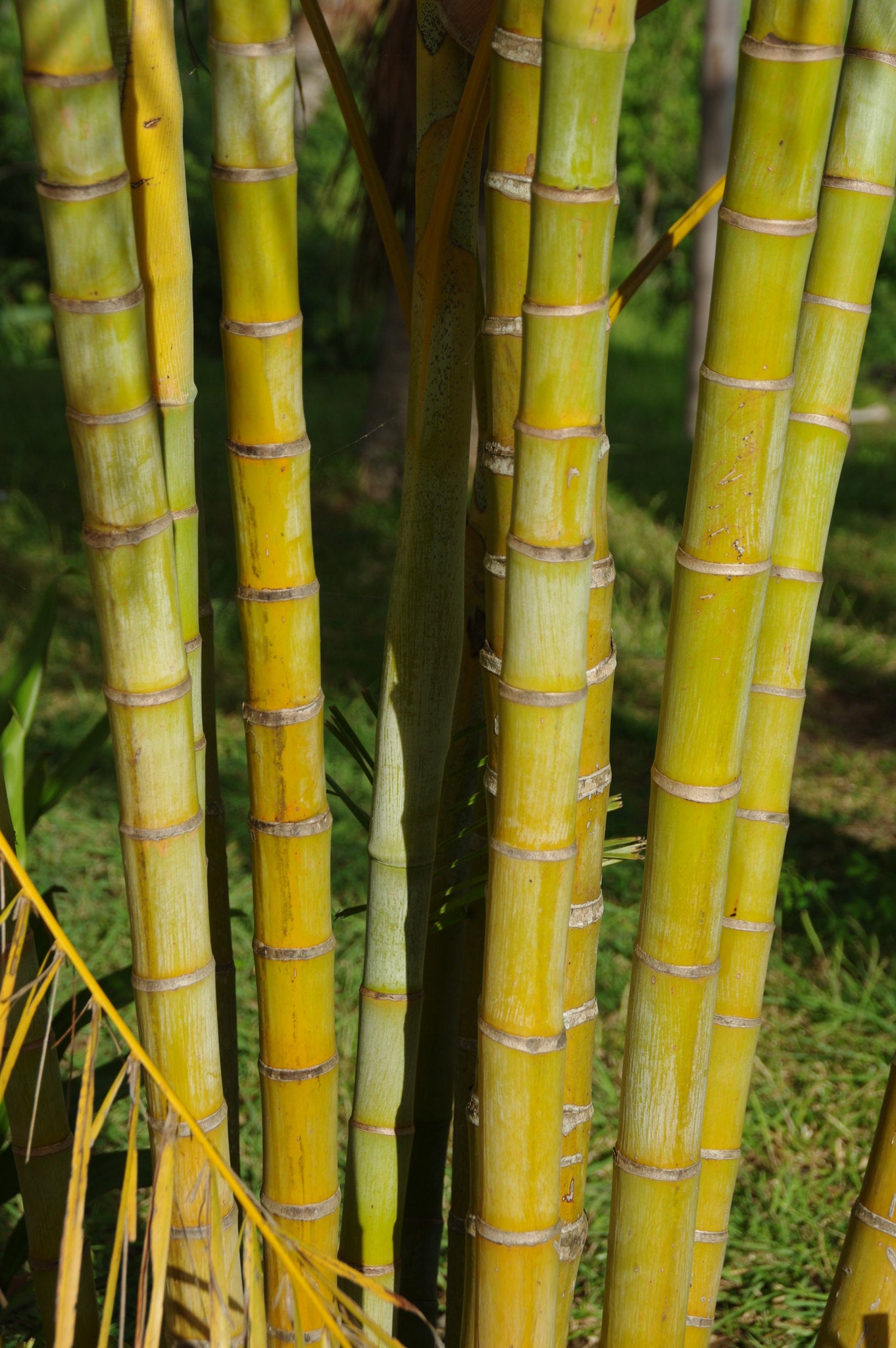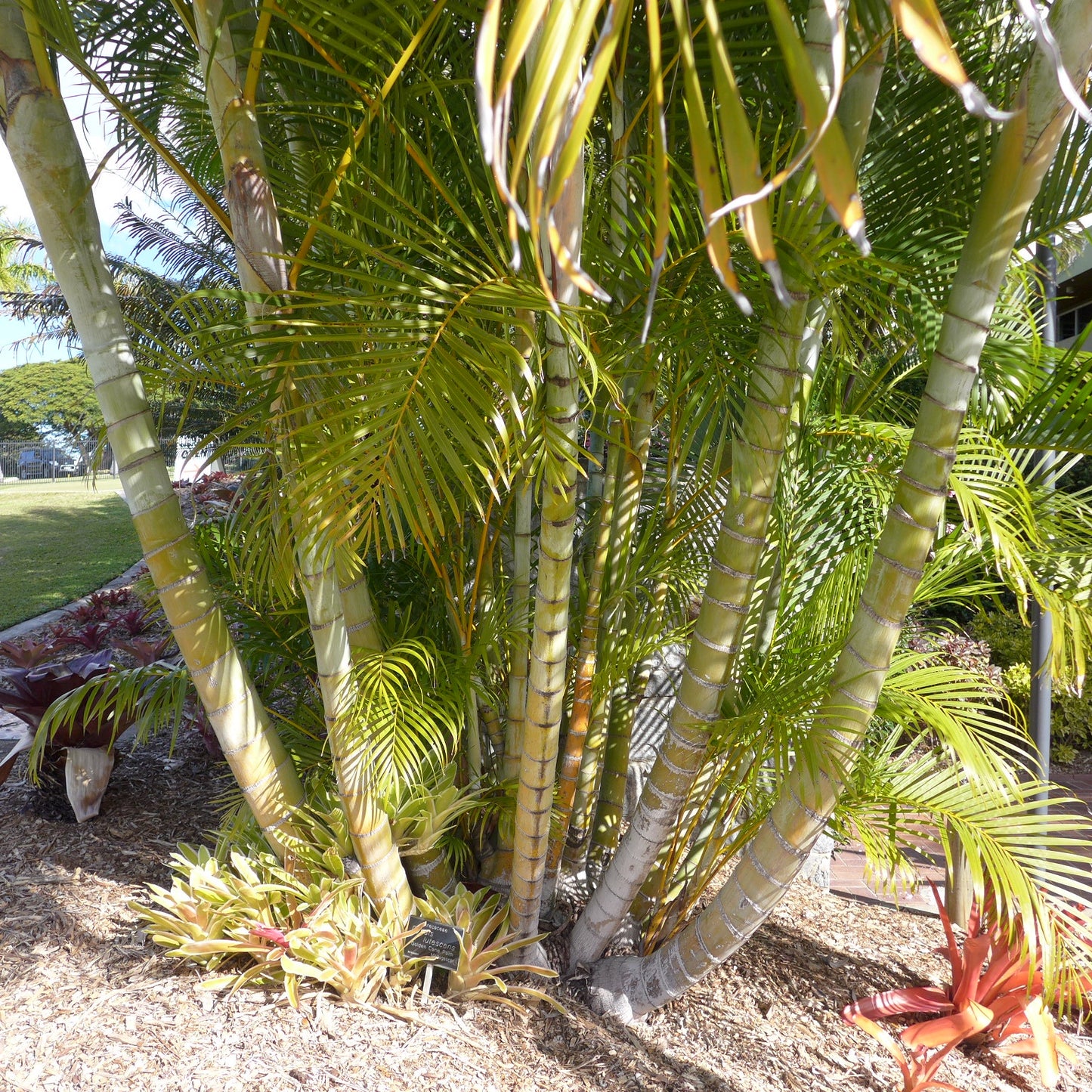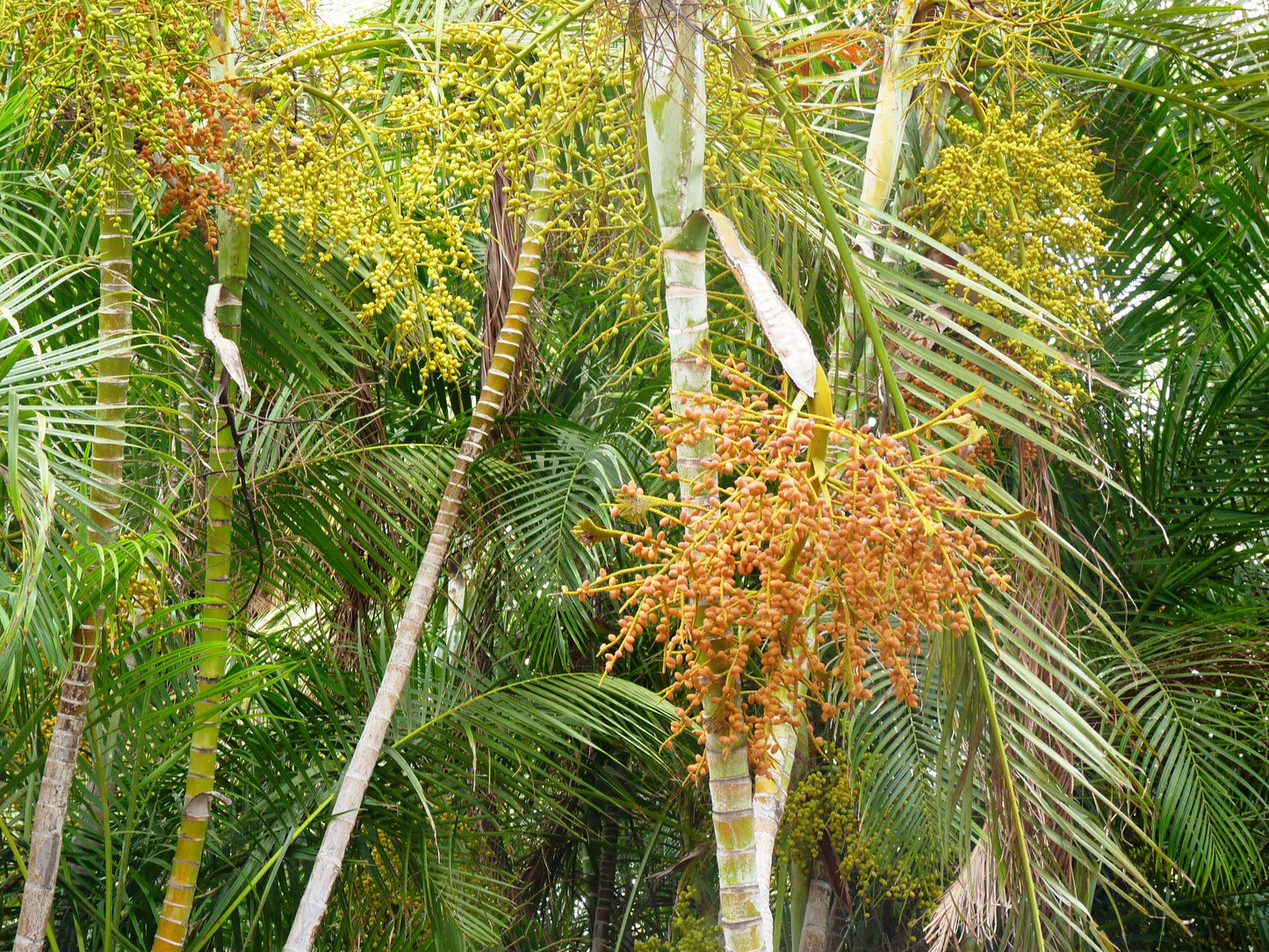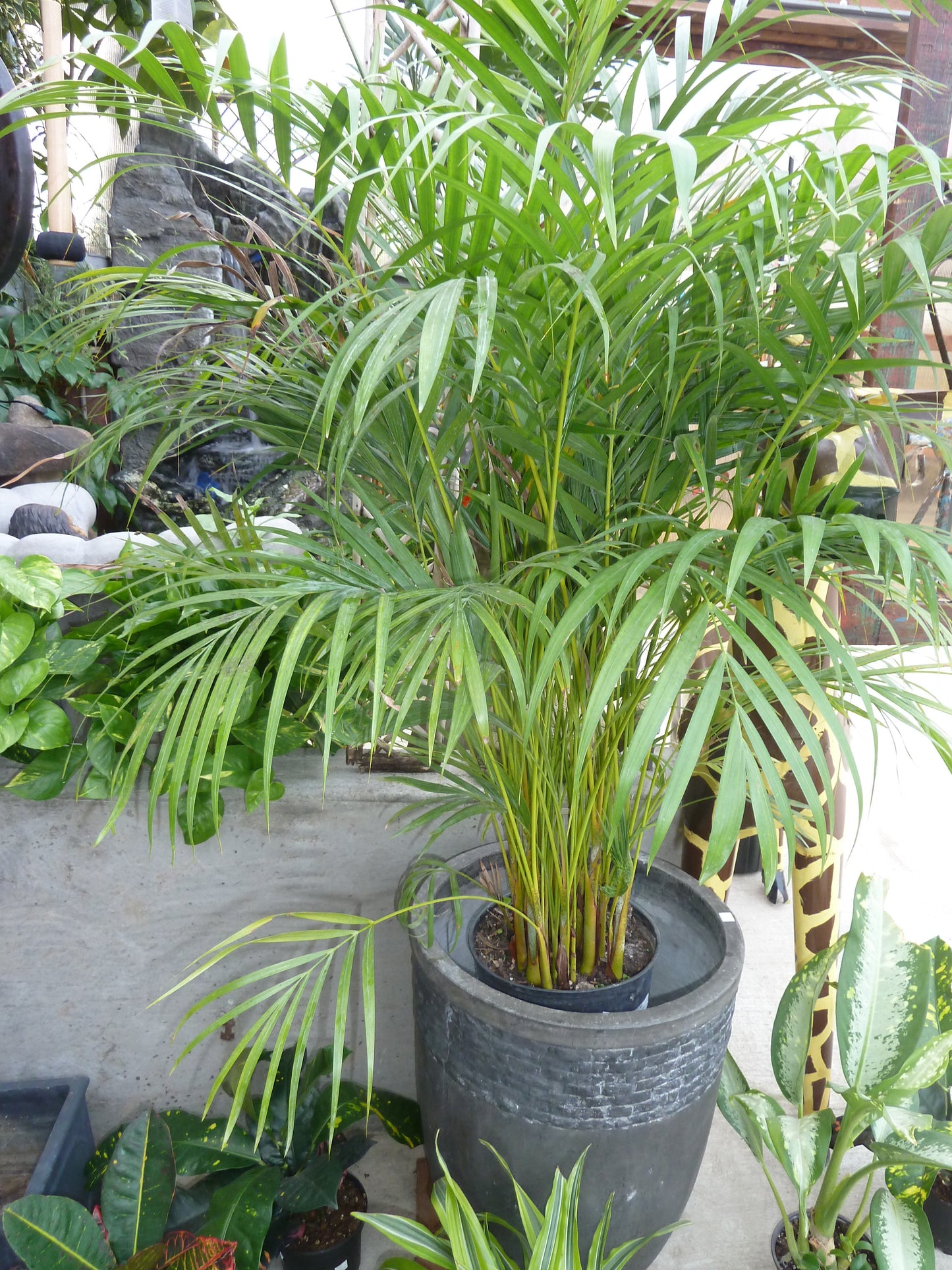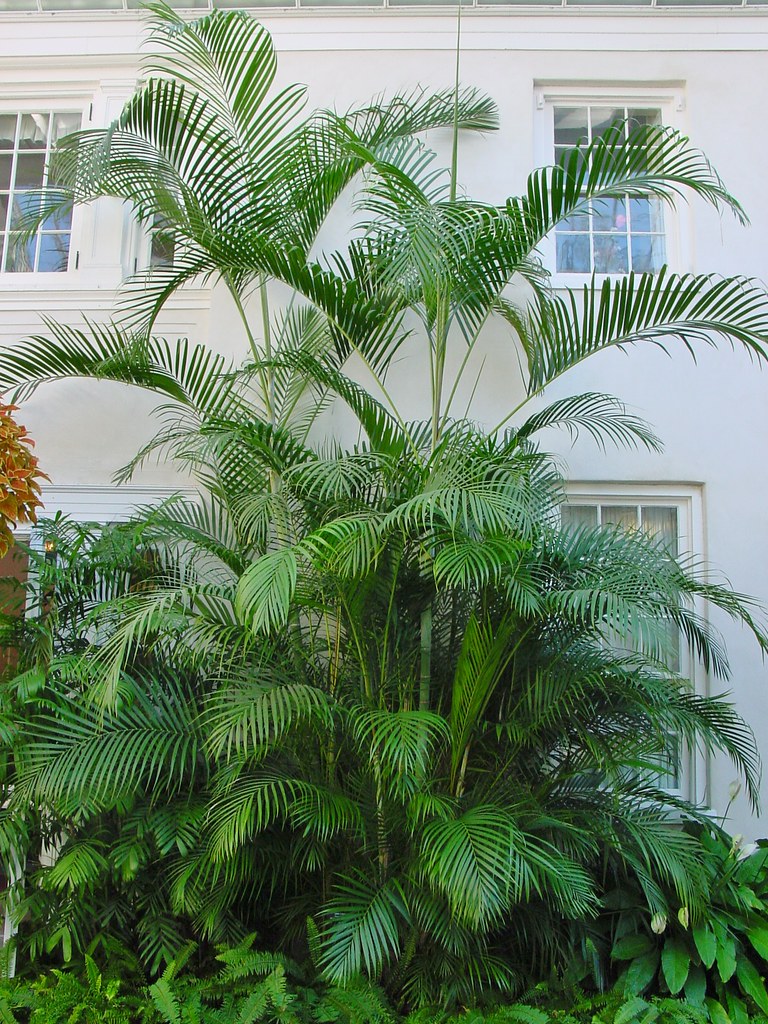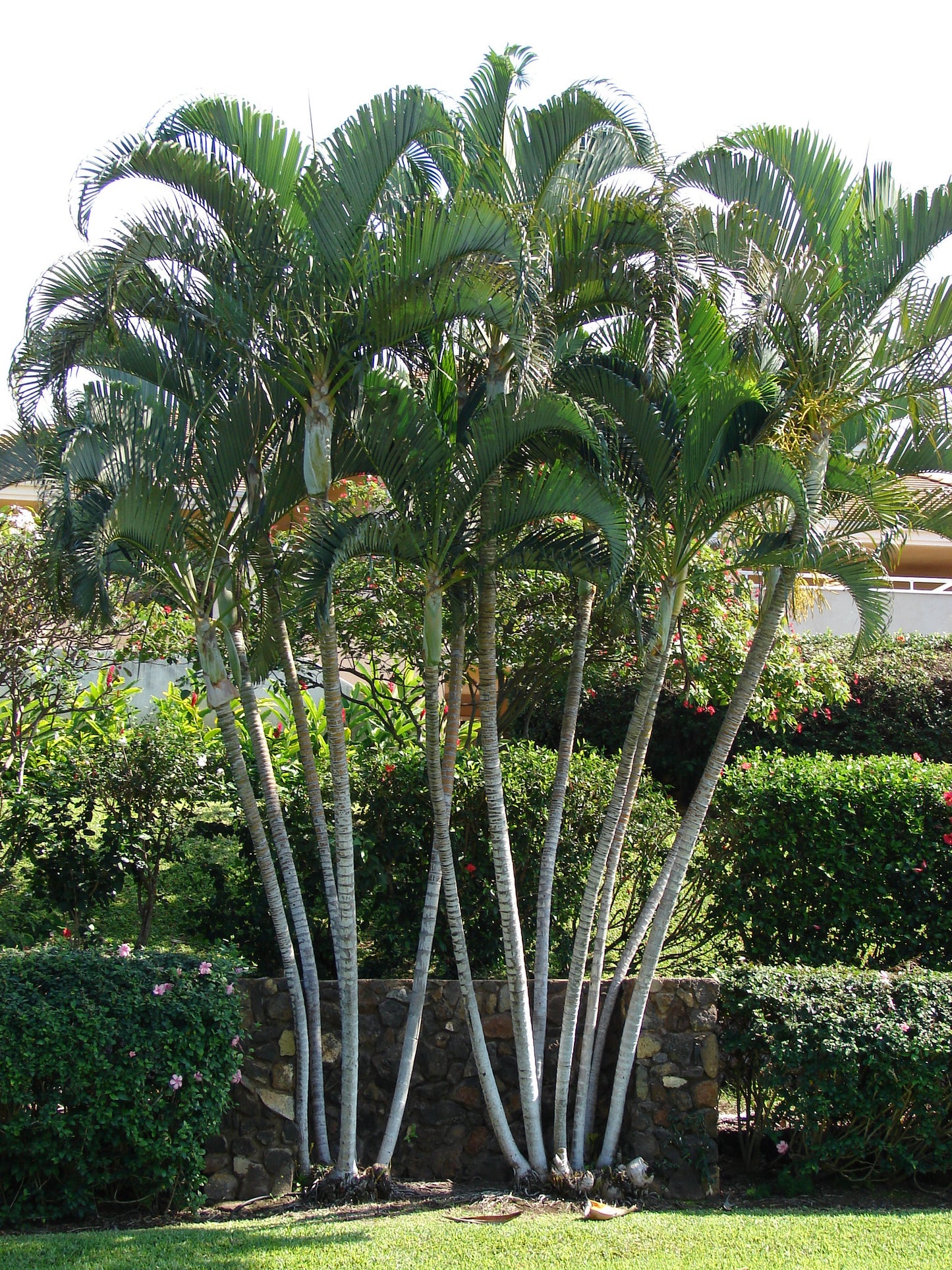Floridaseeds
Areca Palm Butterfly Palm Chrysalidocarpus lutescens 20 Seeds
Areca Palm Butterfly Palm Chrysalidocarpus lutescens 20 Seeds
Couldn't load pickup availability
Chrysalidocarpus lutescens, commonly known as the areca palm, golden cane palm, or butterfly palm, is a popular ornamental palm tree native to Madagascar and naturalized in other tropical and subtropical regions. Here are some key points about it:
Description: Chrysalidocarpus lutescens is a clumping palm with slender, yellowish-green stems that grow up to about 7 meters (23 feet) tall. The leaves are pinnate, meaning they are composed of multiple leaflets arranged along a central stalk. The leaflets are arching and typically bright green in color.
Habitat: Areca palms are native to Madagascar, where they grow in humid, tropical forests. They thrive in warm, tropical climates and are often cultivated as ornamental plants in gardens, parks, and indoor spaces worldwide.
Cultural Significance: Areca palms have been cultivated for centuries for their ornamental value and are commonly used in landscaping and interior decoration. They are prized for their graceful, tropical appearance and are often planted as specimen trees or used in group plantings.
Indoor Plant: Areca palms are popular indoor plants because of their tolerance for low light conditions and relatively easy care requirements. They can add a touch of tropical elegance to indoor spaces such as offices, homes, and shopping malls.
Propagation: Areca palms can be propagated from seeds or by dividing mature plants. Seeds should be planted in a well-draining potting mix and kept consistently moist until germination occurs.
Maintenance: Areca palms require regular watering to keep the soil evenly moist but not waterlogged. They also benefit from occasional fertilization and may need to be repotted periodically as they outgrow their containers. Hardy in zones 9-12.
Growing Instructions
- Scarify the seeds by nicking or sanding the seed coat.
- Soak the seed in water for several hours.
- The seeds like moist, well-drained soil. Prepare a mixture of half potting soil and half sand, perlite or vermiculite. Put the soil in a pot. Water the mixture so that it is moist but not wet.
- Put the seeds on the soil.
- Cover the seeds with a thin layer of soil.
- Water the seeds.
- Place the pots in an area with warm temperatures in full sun or part shade.
- When the seedlings are a few inches tall, they can be transplanted.













